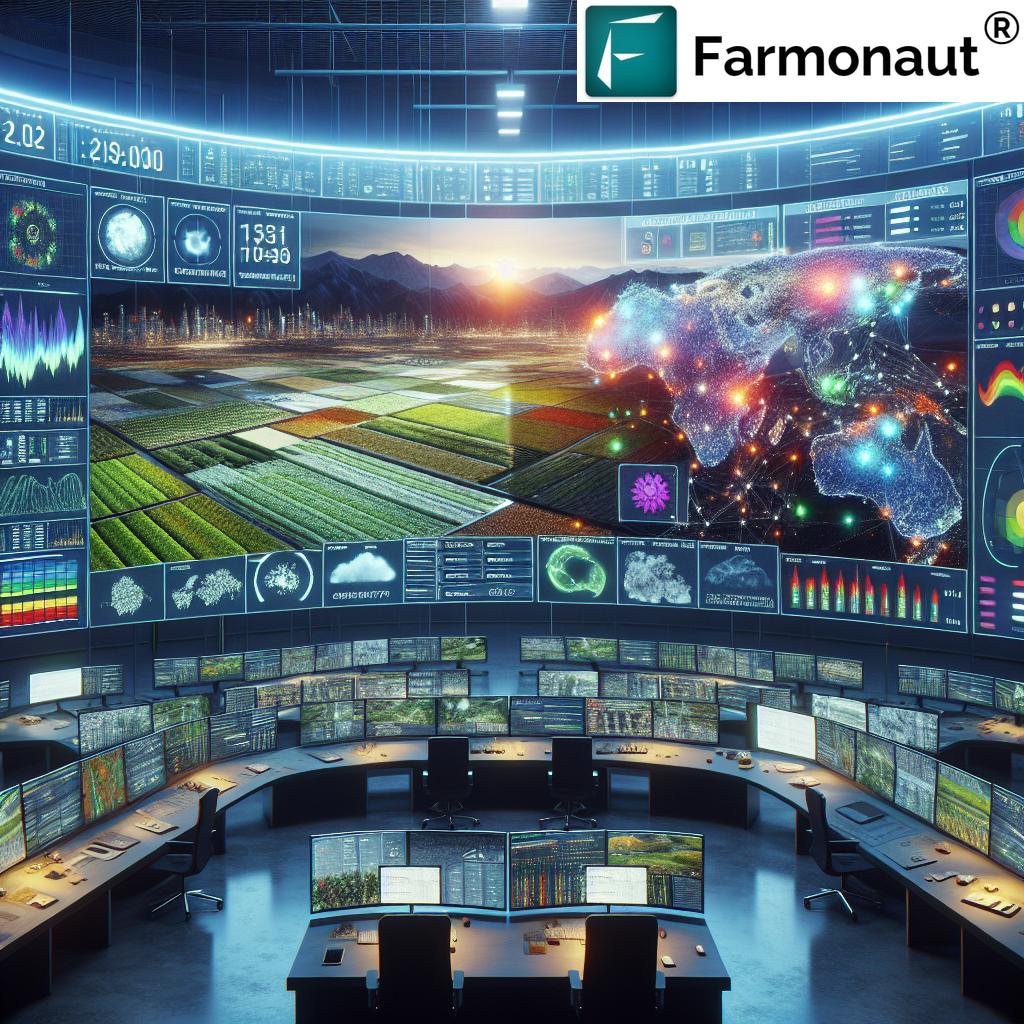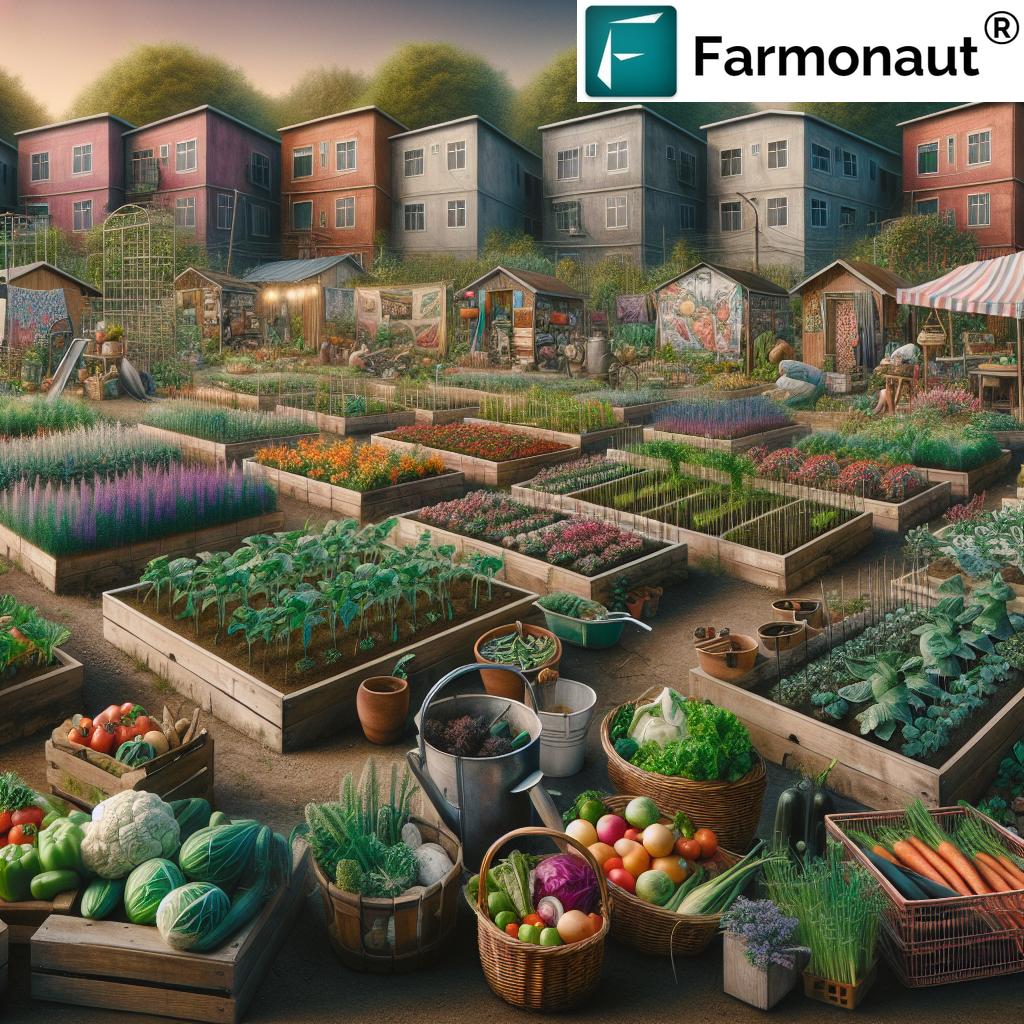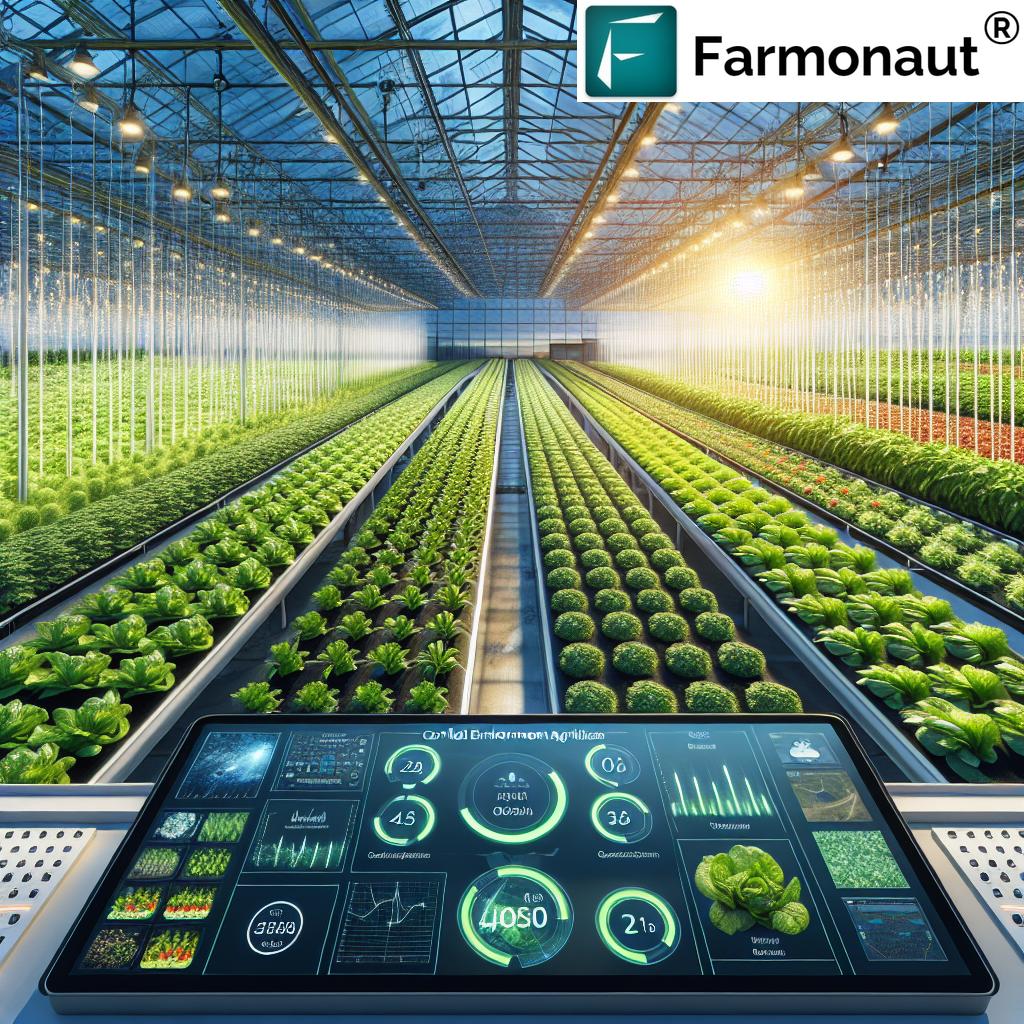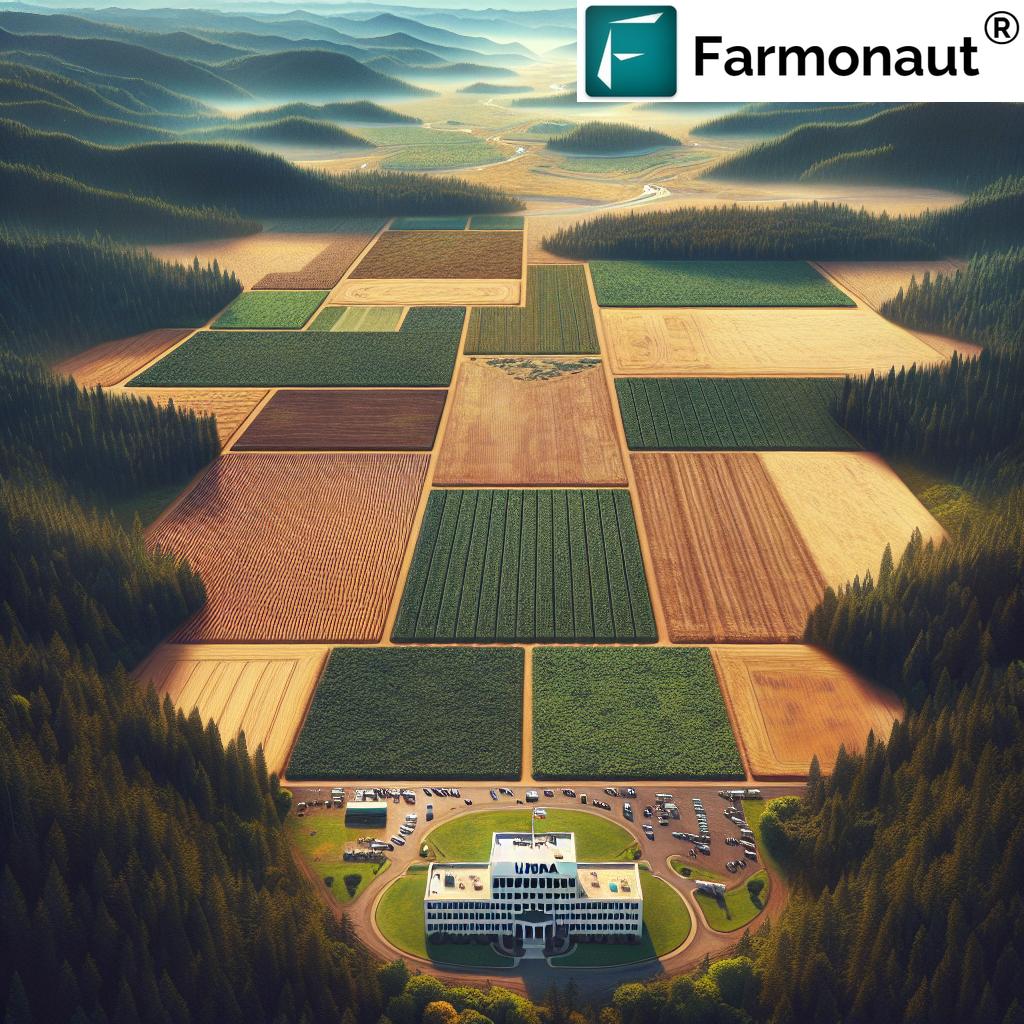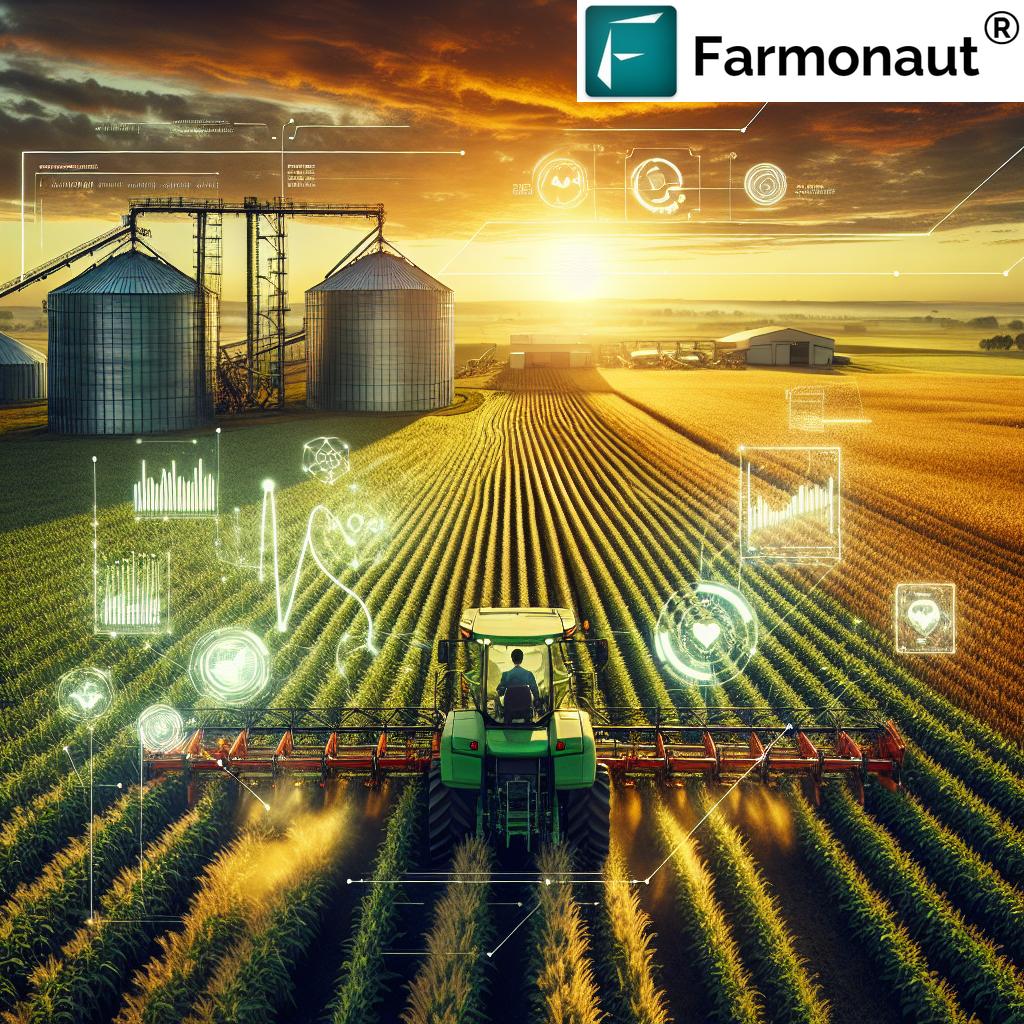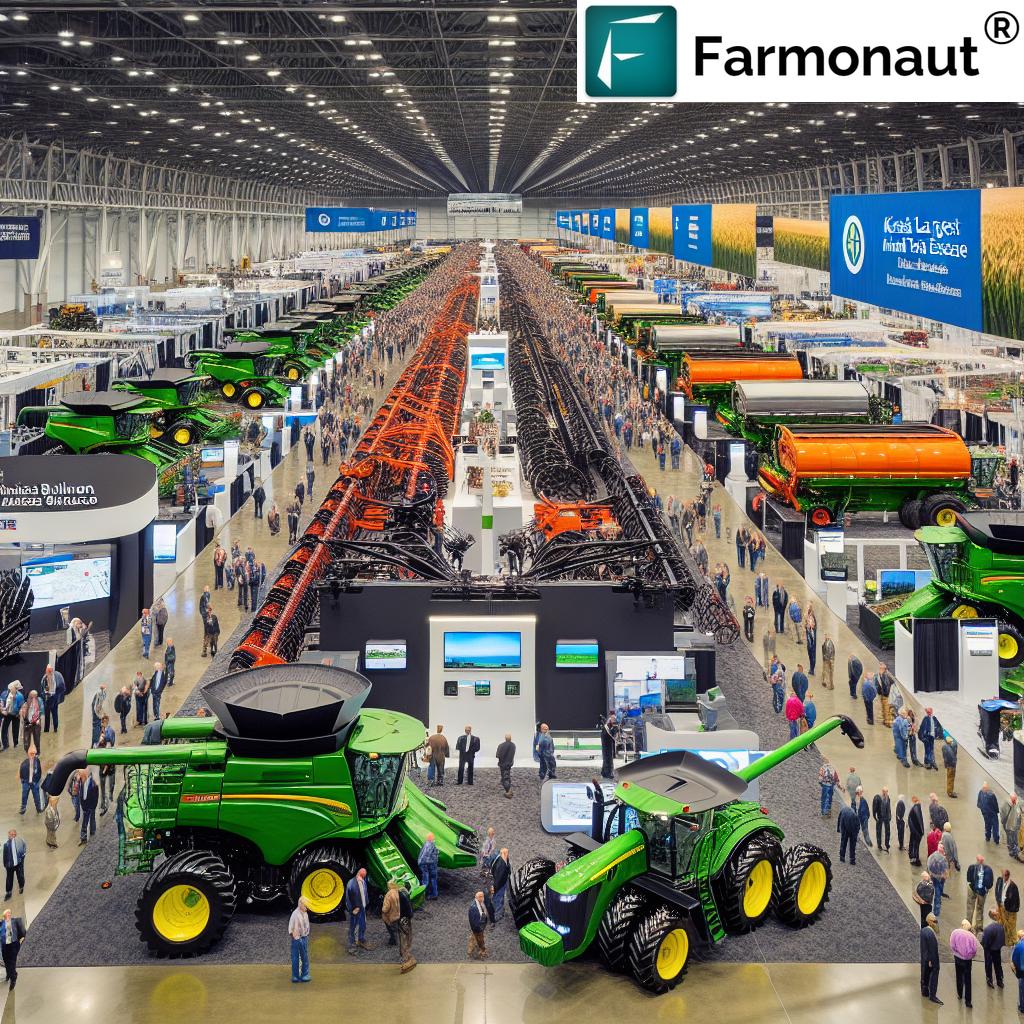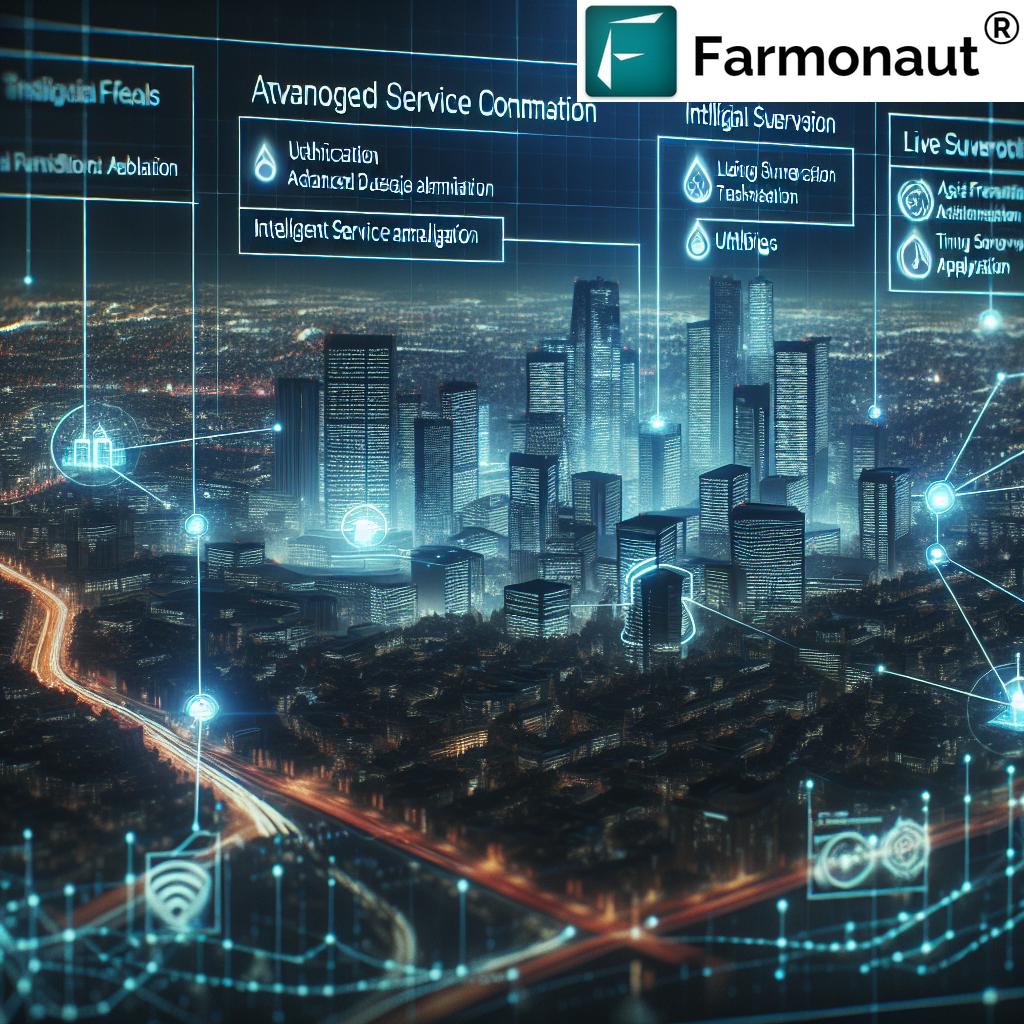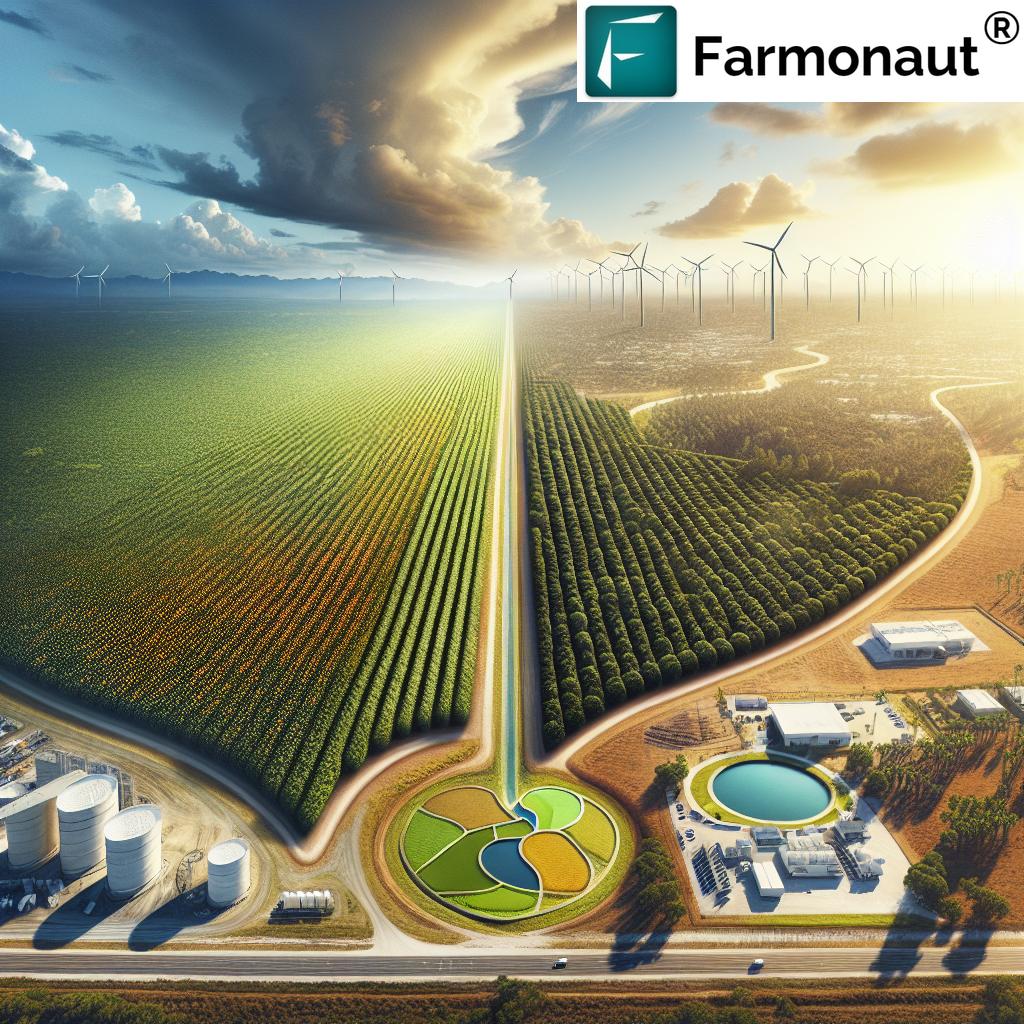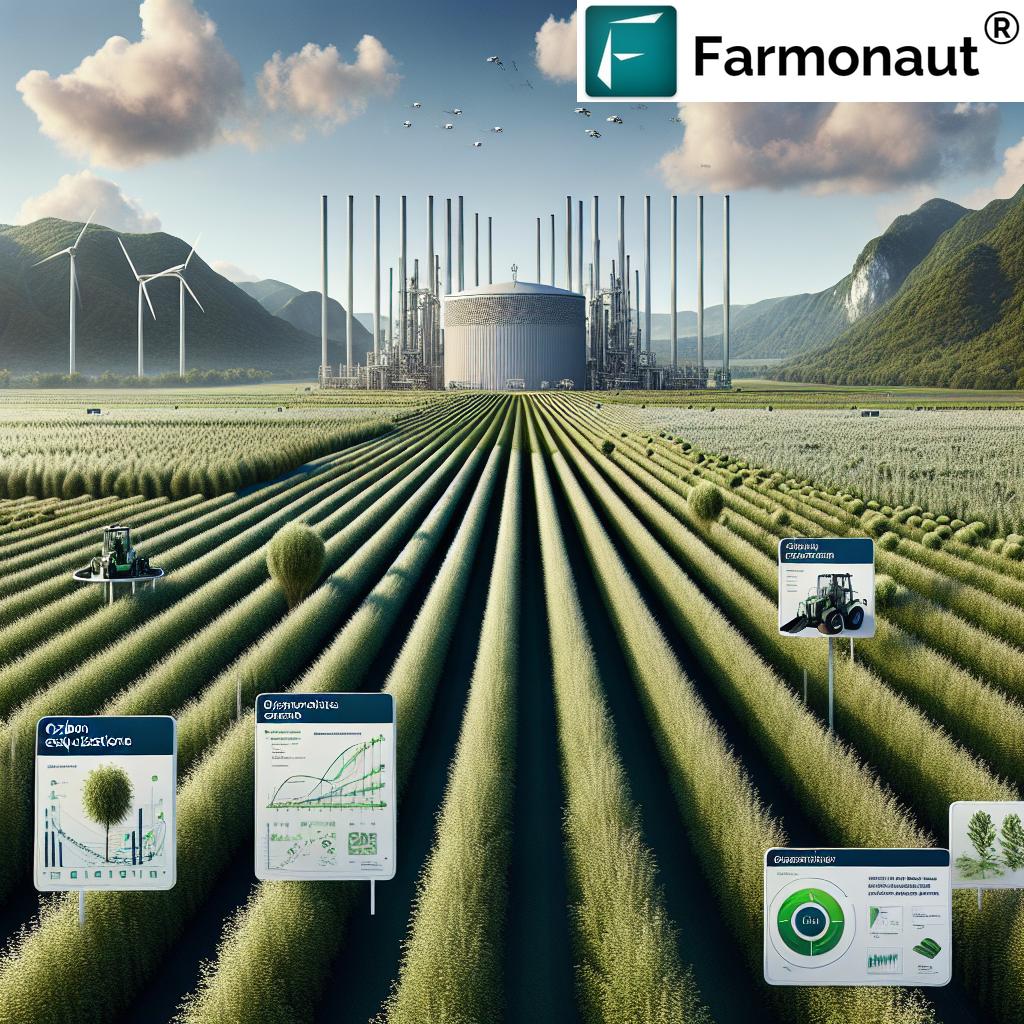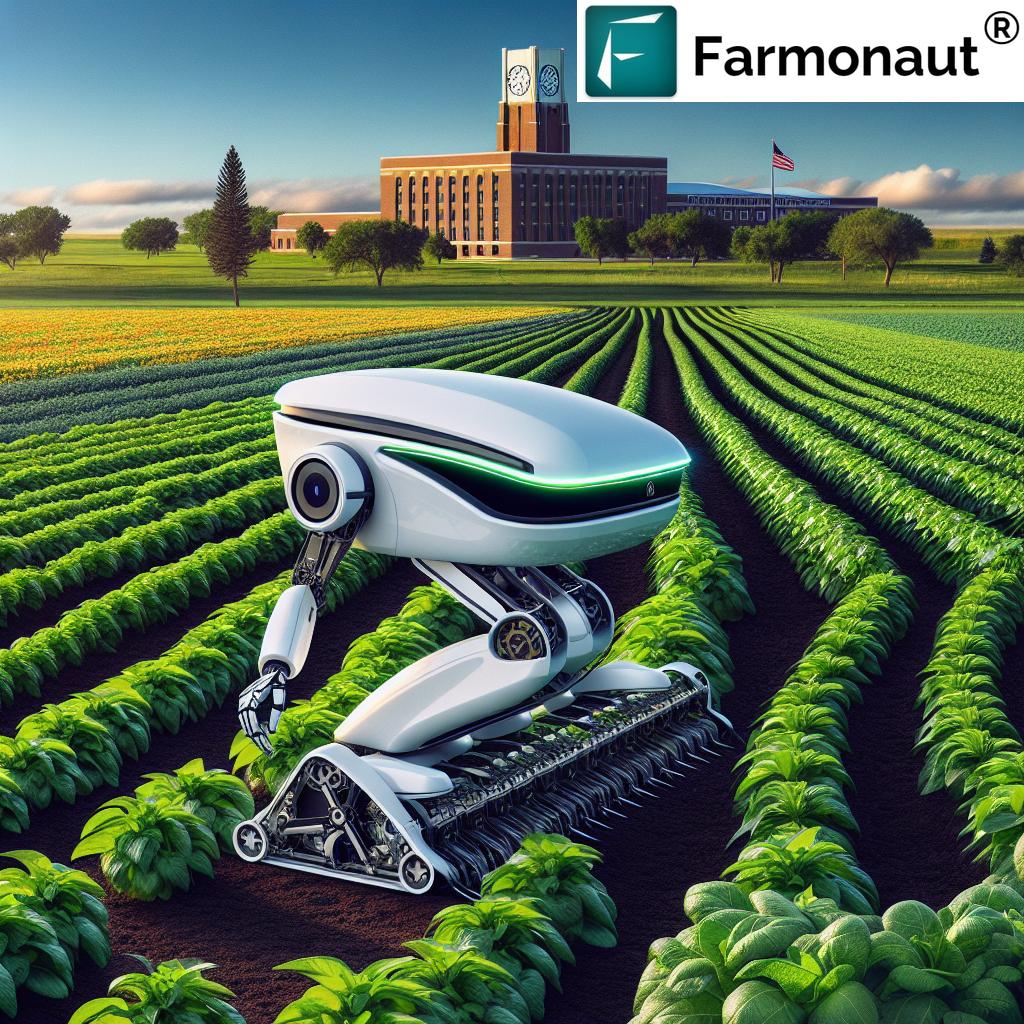Revolutionizing US Farming: How Precision Agriculture and Digital Tools Boost Crop Performance and Resource Optimization
“Precision agriculture tools have increased crop yields by up to 30% while reducing water usage by 20-50% in some US farms.”
In the heartland of America, a quiet revolution is taking place. The sprawling fields that have long been the backbone of US agriculture are undergoing a transformation, powered by cutting-edge technology and data-driven insights. We at Farmonaut are proud to be at the forefront of this agricultural renaissance, offering innovative solutions that are changing the face of farming in the United States and beyond.
As we delve into the world of precision agriculture and digital farming tools, we’ll explore how these advancements are not just improving crop yields, but also optimizing resource use, enhancing decision-making processes, and paving the way for a more sustainable future in agriculture.
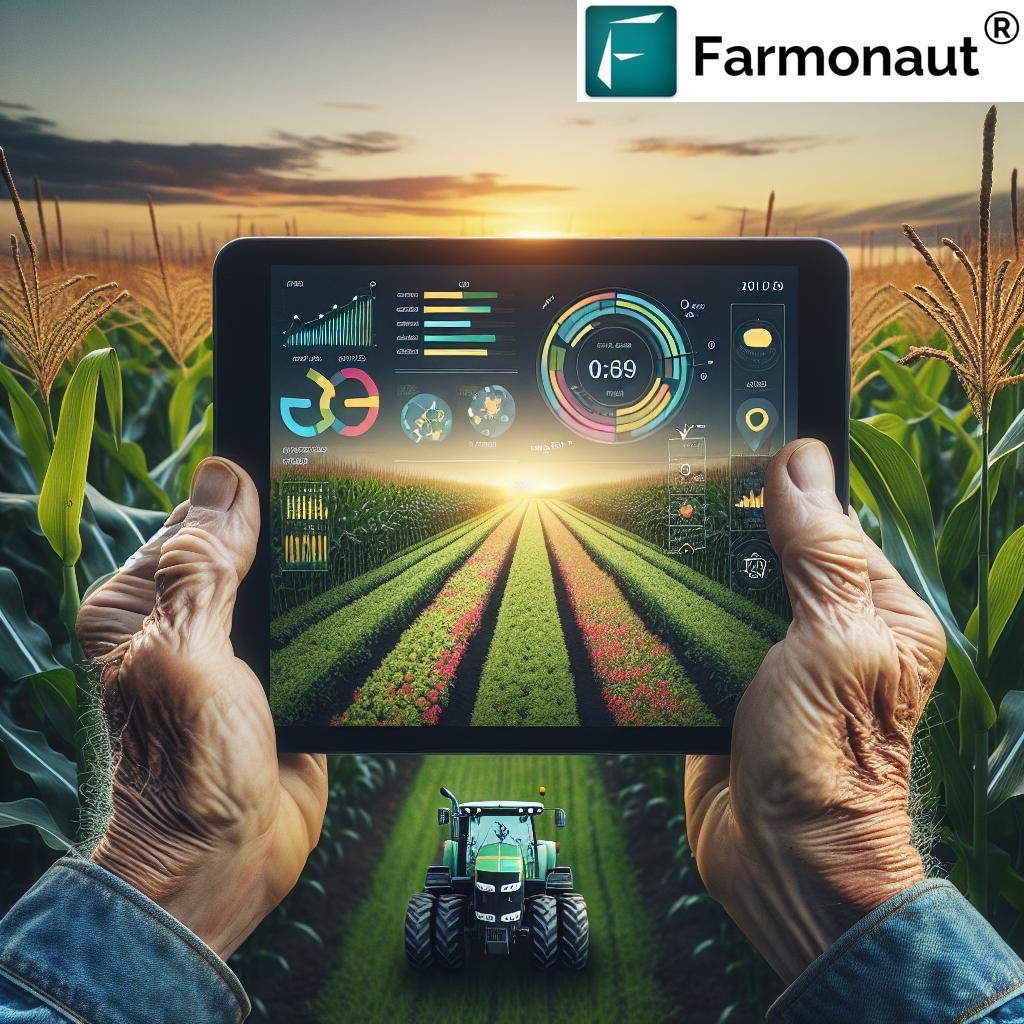
The Dawn of Precision Agriculture in the US
Precision agriculture, also known as precision farming, is an approach that leverages technology to make farming more accurate and controlled. In the United States, this concept has gained significant traction, revolutionizing the way farmers manage their crops and resources. Let’s explore the key components that make up this agricultural revolution:
- Satellite-Based Crop Monitoring: Advanced satellite imagery provides real-time data on crop health, allowing farmers to make informed decisions.
- AI-Powered Advisory Systems: Artificial intelligence analyzes farm data to provide personalized recommendations for crop management.
- Field Mapping Technology: High-precision GPS mapping helps in creating detailed field maps for better planning and execution.
- IoT Sensors: Internet of Things devices collect data on soil moisture, temperature, and other crucial parameters.
These technologies work in harmony to create a more efficient and productive farming ecosystem. By adopting these precision agriculture tools, US farmers are seeing remarkable improvements in their operations.
Farm Management Software: The Digital Backbone of Modern Agriculture
At the heart of this agricultural revolution lies farm management software, a digital tool that’s transforming how farms operate. These sophisticated platforms integrate various aspects of farm management, from planning to execution and analysis. Here’s how farm management software is making a difference:
- Centralized Data Management: All farm-related information is stored and accessed from a single platform.
- Real-Time Field Status Updates: Farmers can monitor their fields in real-time, allowing for quick responses to changing conditions.
- Improved Communication: These tools foster better communication between farmers, agronomists, and other stakeholders.
- Efficient Resource Allocation: By providing detailed insights, the software helps in optimizing the use of resources like water, fertilizers, and pesticides.
Our Farmonaut platform exemplifies the power of farm management software. Through our web and mobile applications, we provide farmers with comprehensive tools for crop monitoring, resource management, and decision-making support.
Agronomy Planning and Crop Performance Analytics
In the realm of precision agriculture, agronomy planning and crop performance analytics play a crucial role. These aspects of digital farming are revolutionizing how farmers approach their crops, from planting to harvest. Let’s delve into how these tools are making a difference:
Agronomy Planning
Agronomy planning involves the strategic management of agricultural land and crops. With digital tools, this process has become more precise and data-driven. Here’s how:
- Soil Analysis: Digital tools provide detailed soil maps, helping farmers understand the nutrient composition and pH levels across their fields.
- Crop Selection: Based on soil data and historical performance, farmers can make informed decisions about which crops to plant in specific areas.
- Planting Schedules: Advanced algorithms help determine optimal planting times based on weather forecasts and crop requirements.
- Resource Allocation: Precision agriculture tools assist in planning the efficient use of resources like water, fertilizers, and pesticides.
Crop Performance Analytics
Once the crops are in the ground, crop performance analytics come into play. These tools provide ongoing insights into crop health and growth, allowing for timely interventions. Key features include:
- Vegetation Index Monitoring: Satellite imagery and drone technology provide regular updates on crop health through metrics like NDVI (Normalized Difference Vegetation Index).
- Yield Prediction: By analyzing historical data and current crop conditions, these tools can predict potential yields, helping farmers plan their harvest and marketing strategies.
- Pest and Disease Detection: Advanced image recognition technology can identify early signs of pest infestation or disease, allowing for prompt treatment.
- Growth Stage Tracking: Farmers can monitor the progress of their crops through different growth stages, ensuring timely interventions and optimal resource application.
At Farmonaut, we’ve integrated these powerful analytics into our platform, providing US farmers with the insights they need to maximize their crop performance and optimize resource use.
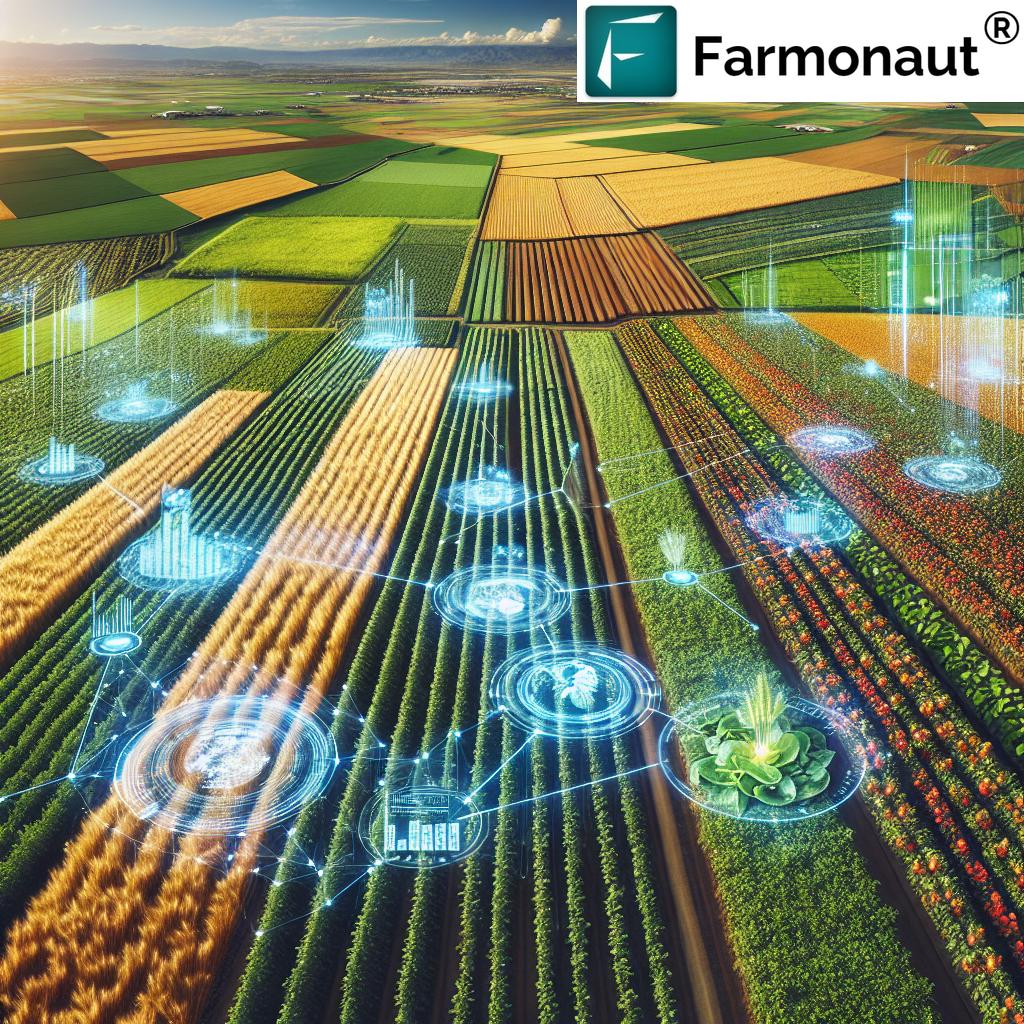
Optimizing Farm Resources through Agricultural Data Insights
One of the most significant advantages of precision agriculture and digital farming tools is their ability to optimize farm resources. By leveraging agricultural data insights, farmers can make more informed decisions about resource allocation, leading to increased efficiency and sustainability.
“Digital farming solutions have helped US farmers reduce fertilizer use by 15-20% without compromising crop productivity.”
Water Management
Water is a precious resource in agriculture, and its efficient use is crucial for sustainable farming. Digital tools are revolutionizing water management in the following ways:
- Precision Irrigation: Soil moisture sensors and weather data help determine exactly when and how much to irrigate.
- Drought Resistance: By analyzing crop water stress levels, farmers can select and cultivate more drought-resistant varieties.
- Water Conservation: Smart irrigation systems reduce water waste by applying water only where and when it’s needed.
Nutrient Management
Proper nutrient management is essential for optimal crop growth and environmental stewardship. Digital farming tools assist in:
- Variable Rate Application: Fertilizers are applied at variable rates across fields based on soil nutrient maps.
- Nutrient Tracking: Farmers can monitor nutrient levels in the soil and crops, ensuring optimal plant nutrition.
- Reduced Environmental Impact: By applying nutrients more precisely, the risk of runoff and environmental pollution is minimized.
Pest and Disease Management
Early detection and targeted treatment of pests and diseases can significantly reduce crop losses and pesticide use:
- Predictive Modeling: AI algorithms predict pest and disease outbreaks based on weather patterns and historical data.
- Targeted Application: Precision spraying technology applies pesticides only where needed, reducing overall usage.
- Integrated Pest Management: Digital tools support comprehensive approaches to pest control, minimizing chemical interventions.
By leveraging these data-driven insights, US farmers can significantly reduce their input costs while maintaining or even improving crop yields. This not only benefits the farmers’ bottom line but also contributes to more sustainable agricultural practices.
Explore Farmonaut’s API for advanced agricultural data insights
Enhancing Communication and Collaboration in Agriculture
In the modern agricultural landscape, effective communication and collaboration are crucial for success. Digital agronomy solutions are playing a pivotal role in fostering better interactions between various stakeholders in the farming ecosystem. Let’s explore how these tools are breaking down communication barriers:
Farmer-Agronomist Interactions
Digital platforms are revolutionizing the way farmers and agronomists work together:
- Real-Time Data Sharing: Farmers can instantly share field data with agronomists for quick analysis and recommendations.
- Virtual Field Visits: Agronomists can conduct remote field assessments using high-resolution satellite imagery and drone footage.
- Collaborative Decision Making: Shared dashboards allow for joint problem-solving and strategy development.
Integration of Service Providers
Digital tools are also streamlining the integration of various service providers in the agricultural value chain:
- Contractor Management: Farmers can easily schedule and manage contractors for tasks like planting, spraying, and harvesting.
- Input Supplier Coordination: Digital platforms facilitate seamless communication with input suppliers, ensuring timely delivery of seeds, fertilizers, and pesticides.
- Data-Driven Recommendations: Service providers can offer more tailored advice based on shared farm data and analytics.
Enhanced Traceability and Compliance
Digital solutions are improving traceability and helping farmers meet compliance requirements:
- Record Keeping: Automated systems maintain detailed records of all farm activities, simplifying compliance reporting.
- Chain of Custody: Digital tracking of produce from farm to market enhances food safety and consumer trust.
- Certification Support: These tools help farmers adhere to and document practices required for various certifications (e.g., organic, non-GMO).
At Farmonaut, we understand the importance of these connections. Our platform is designed to facilitate seamless communication and collaboration among all stakeholders in the agricultural ecosystem, from farmers and agronomists to service providers and compliance officers.
Check out our API Developer Docs for integration possibilities
The Future of Farming: Sustainable Practices through Data-Driven Approaches
As we look to the future of agriculture in the United States, it’s clear that sustainable farming practices will play a crucial role. Data-driven approaches enabled by precision agriculture and digital farming tools are paving the way for more environmentally friendly and economically viable farming methods.
Reducing Environmental Impact
Digital tools are helping farmers minimize their environmental footprint:
- Carbon Footprint Tracking: Advanced analytics help farmers measure and reduce their carbon emissions.
- Soil Health Management: Data-driven insights guide practices that improve soil health and reduce erosion.
- Biodiversity Promotion: Digital mapping helps in planning and maintaining areas for wildlife and beneficial insects.
Precision Nutrient Management
Optimizing nutrient application is key to sustainable farming:
- Variable Rate Technology: Applies fertilizers at variable rates based on precise soil and crop needs.
- Nutrient Use Efficiency: Data analytics help farmers maximize the efficiency of nutrient uptake by crops.
- Reduced Runoff: Precise application minimizes nutrient runoff, protecting water sources.
Water Conservation Strategies
In the face of climate change and water scarcity, digital tools are crucial for water management:
- Smart Irrigation Systems: Use real-time data to optimize irrigation schedules and amounts.
- Drought Prediction: Advanced modeling helps farmers prepare for and mitigate the effects of drought.
- Water Quality Monitoring: Digital sensors help maintain water quality for irrigation and surrounding ecosystems.
At Farmonaut, we’re committed to supporting these sustainable practices through our advanced satellite-based monitoring and AI-driven advisory systems. Our tools empower US farmers to make data-driven decisions that not only improve their crop performance but also contribute to long-term environmental sustainability.
Precision Agriculture Benefits Comparison
| Agricultural Aspect | Traditional Farming | Precision Agriculture | Improvement Percentage |
|---|---|---|---|
| Resource Utilization | Uniform application across fields | Targeted application based on specific needs | 20-30% reduction in input use |
| Crop Yield | Variable yields with inconsistent quality | Improved yields with consistent quality | 10-15% increase in yield |
| Decision-Making Speed | Based on experience and periodic observations | Real-time data-driven decisions | 50-60% faster decision-making |
| Environmental Impact | Higher risk of over-application and runoff | Reduced chemical use and environmental impact | 30-40% reduction in environmental impact |
| Operational Efficiency | Manual tracking and management | Automated systems and data integration | 25-35% increase in operational efficiency |
This table clearly illustrates the significant advantages that precision agriculture offers over traditional farming methods. The improvements in resource utilization, crop yield, decision-making speed, environmental impact, and operational efficiency demonstrate why the adoption of digital farming tools is crucial for the future of US agriculture.
Overcoming Challenges in Adoption of Digital Farming Tools
While the benefits of precision agriculture and digital farming tools are clear, their adoption in the US faces several challenges. Understanding and addressing these hurdles is crucial for the widespread implementation of these technologies:
Initial Investment Costs
One of the primary barriers to adoption is the upfront cost of implementing digital farming systems:
- Hardware Costs: Sensors, drones, and other necessary equipment can be expensive.
- Software Subscriptions: Ongoing costs for farm management software and data analytics platforms.
- Training and Education: Expenses related to learning how to use and maximize the benefits of new technologies.
To address this, companies like Farmonaut are offering scalable solutions and flexible pricing models to make these technologies more accessible to farms of all sizes.
Technical Expertise and Training
The complexity of digital farming tools can be daunting for some farmers:
- Digital Literacy: Not all farmers are comfortable with advanced technology.
- Continuous Learning: The rapidly evolving nature of technology requires ongoing education.
- Support Systems: The need for reliable technical support and training programs.
To overcome this, we at Farmonaut provide comprehensive training and support to ensure farmers can effectively use our digital tools.
Data Privacy and Security Concerns
As farming becomes more data-driven, concerns about data ownership and security arise:
- Data Ownership: Clarity on who owns the farm data and how it can be used.
- Cybersecurity: Protecting sensitive farm data from breaches and unauthorized access.
- Transparency: Clear policies on data usage and sharing practices.
At Farmonaut, we prioritize data security and transparency, implementing robust measures to protect our users’ information and providing clear data usage policies.
Integration with Existing Systems
Many farms already have established systems and practices:
- Legacy Equipment: Ensuring new digital tools can work with existing farm machinery.
- Data Silos: Overcoming the challenge of integrating data from various sources.
- Workflow Disruption: Minimizing disruptions to established farming practices during technology adoption.
Our platform is designed with interoperability in mind, allowing for seamless integration with a wide range of existing farm systems and equipment.
The Role of Farmonaut in Revolutionizing US Farming
As we’ve explored the various aspects of precision agriculture and digital farming tools, it’s clear that these technologies are set to play a pivotal role in the future of US agriculture. At Farmonaut, we’re proud to be at the forefront of this agricultural revolution, offering innovative solutions that address the unique challenges and opportunities faced by US farmers.
Our Comprehensive Digital Farming Platform
Farmonaut’s platform is designed to be a one-stop solution for modern farming needs:
- Satellite-Based Crop Monitoring: Our advanced satellite imagery provides real-time insights into crop health and field conditions.
- AI-Powered Advisory System: Our Jeevn AI system offers personalized recommendations based on farm-specific data and conditions.
- Resource Management Tools: From water to nutrients, our platform helps optimize the use of all farm resources.
- Weather Integration: Accurate weather forecasts and historical data are integrated into our planning and advisory tools.
Empowering Farmers with Data-Driven Insights
We believe that data is the key to unlocking agricultural potential:
- User-Friendly Analytics: Complex data is presented in easy-to-understand formats, enabling farmers to make informed decisions quickly.
- Predictive Modeling: Our AI algorithms help forecast potential issues and opportunities, allowing for proactive management.
- Performance Tracking: Farmers can easily monitor and analyze their farm’s performance over time, identifying trends and areas for improvement.
Commitment to Sustainability
At Farmonaut, we’re dedicated to promoting sustainable farming practices:
- Precision Application: Our tools enable precise application of inputs, reducing waste and environmental impact.
- Carbon Footprint Monitoring: We help farmers track and reduce their carbon emissions, contributing to more sustainable agriculture.
- Biodiversity Support: Our platform includes features to help maintain and enhance biodiversity on farms.
By choosing Farmonaut, US farmers are not just adopting a technology platform; they’re joining a movement towards more efficient, productive, and sustainable agriculture. Our commitment to innovation, ease of use, and farmer success drives us to continually improve and expand our offerings.
Conclusion: Embracing the Future of US Agriculture
As we’ve explored throughout this article, the integration of precision agriculture and digital farming tools is not just a trend, but a necessary evolution in US agriculture. These technologies offer solutions to some of the most pressing challenges faced by farmers today, from resource optimization to environmental sustainability.
The benefits of adopting these digital tools are clear:
- Increased crop yields and quality
- Optimized use of water, fertilizers, and pesticides
- Reduced environmental impact
- Improved decision-making through real-time data and analytics
- Enhanced communication and collaboration across the agricultural ecosystem
While challenges in adoption remain, the potential rewards far outweigh the initial hurdles. As technology continues to advance and become more accessible, we at Farmonaut are committed to supporting US farmers in their journey towards more efficient, productive, and sustainable farming practices.
The future of US agriculture is digital, data-driven, and sustainable. By embracing these innovations, farmers can not only improve their own operations but also contribute to a more resilient and sustainable food system for generations to come.
We invite you to join us in this agricultural revolution. Explore our platform, leverage our tools, and let’s work together to shape the future of farming in the United States and beyond.
Frequently Asked Questions (FAQ)
Q1: What is precision agriculture?
A1: Precision agriculture is an approach to farm management that uses information technology and specialized equipment to optimize crop yields and reduce waste. It involves collecting and analyzing data about crop, soil, and weather conditions to make more informed decisions about planting, fertilizing, and harvesting.
Q2: How does Farmonaut’s satellite-based crop monitoring work?
A2: Farmonaut uses high-resolution satellite imagery to monitor crop health and field conditions. Our advanced algorithms analyze these images to provide insights on vegetation health, crop stress, and potential issues like pest infestations or nutrient deficiencies.
Q3: Can small-scale farmers benefit from digital farming tools?
A3: Absolutely! While the initial investment might seem daunting, many digital farming tools, including Farmonaut’s platform, are scalable and offer solutions for farms of all sizes. The long-term benefits in terms of improved yields and resource optimization can be particularly valuable for small-scale farmers.
Q4: How does precision agriculture contribute to sustainability?
A4: Precision agriculture promotes sustainability by enabling more efficient use of resources. It allows for targeted application of water, fertilizers, and pesticides, reducing waste and minimizing environmental impact. Additionally, it can help in practices that improve soil health and biodiversity.
Q5: Is my farm data secure with Farmonaut?
A5: At Farmonaut, we take data security very seriously. We employ industry-standard encryption and security measures to protect your farm data. We also have clear policies on data ownership and usage, ensuring that you remain in control of your information.





